Mission Investing
In addition to grantmaking, our investments are an effective tool for achieving positive impact. They include program-related investments (PRIs) that directly support our mission in the South. Our investments align with our values and adhere to our Investment Policy, which includes environmental, social and governance factors. These criteria include community impact, labor rights, climate and environmental impact, corporate governance, supply chain management, among other practices.
Through our PRIs, we support systemic change efforts to build wealth and power in low-wealth communities and communities of color through strategies that democratize ownership and governance of capital, land, and labor.This includes exploring how capital can be leveraged to support community power-building across four domains:
- Community Ownership: Capital directed to projects that sustainably meet community needs and expand asset ownership, especially in working-class communities of color and communities from which wealth has historically been extracted.
- Community Governance: Supporting structures and practices for community leadership, accountability, learning, and control over finance as a shared resource.
- Community Action: Collective action that amplifies social and economic justice efforts to change dominant narratives and build alternative systems, by strengthening the ability of organizations rooted in community to engage in structural change.
- Land Justice: Efforts focused on land reclamation, land access, and ownership.
To this end, we are pursuing a new impact investing framework (through PRIs and grants) that explores expanded impacts through various investment types. This could include, but not limited to:
- Inviting new PRI partners with experience deploying equity, debt/equity hybrid, and debt financial products in alignment with this learning strategy goals.
- Investing in funds, community enterprises and land strategies that distribute ownership and control of assets within historically oppressed communities.
- Models that enable working-class people to directly steward capital and make decisions in service of the common good.
- Innovative community-driven solutions to provide equitable and non-extractive financing to farmers, land stewards, entrepreneurs, and community groups that advance systemic change towards racial equity and a just economy.
- Initiatives that advance ecological restoration, and transition to sustainable and just economy centering historically marginalized communities.
- Enterprises that seek to re-localize most production and consumption to the benefit of local communities.
- Partnering with other funders to align and promote more resources, impact investments, and PRI capital to the US South.
The Foundation will deploy tools available to advance these goals, including grantmaking, PRIs, investing, influencing, leveraging, communications and co-learning. Approved in June 2024, this is a “learning” strategy, meaning we will evaluate our impacts and make adjustments as we engage with the people we serve across the South, listen to our communities, and learn through the deployment of the Foundation’s resources. Further, this framework will evolve as MRBF staff incorporates communities’ lived experience and reflections from our partners on the ground.
How to Apply
- Exploring potential alignment: A prospective partner can submit an Organizational Summary at any point in the year.
- This Organizational Summary helps Foundation staff to get familiar with an organization’s strategies, networks, and goals. This is not a grant application nor a letter of intent- but an opportunity for the Foundation to learn about your organization’s work and explore potential alignment with current funding priorities.
- After the Organizational Summary is reviewed, staff may reach out to set up a learning call to explore potential alignment with MRBF’s funding priorities and strategic directions.
- Application Process: If funding is available and work aligns with priorities, the Foundation may invite the organization to submit a proposal, along with instructions and guidelines.
- Once a full proposal is received, staff conduct a learning meeting to learn more about the work and strategies.
- If the applicant organization is a good fit for MRBF funding, staff will write a recommendation for the board of directors for approval.
Thank you for your interest in the Babcock Foundation. We are currently transitioning to a new grants management system. Our online portal will be offline from November 1, 2025, through February 9, 2026.
We appreciate your understanding and patience as we make these improvements to better serve our partners and applicants. We are excited to reopen the portal next year with improved accessibility and functionality.
The Foundation will not be accepting organizational summaries while our system is undergoing these updates. For organizations intending to share more about your work, please follow up after January 15, 2026, to submit the organizational summary form.
If you are an existing grantee with questions, please contact your Network Officer directly.
How Funds May Be Used
Organizations may use funds for:
- General operating support
- Project support
- “Glue” support for networks of grassroots and partner organizations
- Organizational development
Size and duration of grants: The size and duration of grants are matched to an organization’s scale of impact, needs, capabilities, and opportunities. Once invited to apply, potential grantees will work with a network officer to determine the amount and duration of grants.
